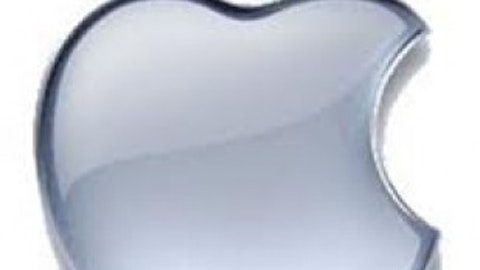Given that Windows RT and Surface RT have not been successful, it seems certain that Redmond regrets the whole endeavor, although Microsoft Corporation (NASDAQ:MSFT) management continue to put on a brave face. Earlier this year, the sensible thing for Microsoft to do would have been to propose reuniting with Intel Corporation (NASDAQ:INTC). Microsoft would give up on ARM Holdings plc (NASDAQ:ARMH) and in return Intel would give up on Android. Now, it appears to late for that. Microsoft still has issues with Windows 8 that will hopefully be addressed in 8.1, so it doesn’t have much leverage. Meanwhile, Intel has come to believe that the Android market could be its market.
Windows 8 was supposed to bring the mobile market to Intel, but Intel has decided not to wait for it to arrive. Intel Inside would have been the key advantage of Wintel tablets, but now that’s gone for Microsoft Corporation (NASDAQ:MSFT). The immediate impact of Samsung’s decision will be negligible, but as other Android manufacturers join Samsung in adopting Intel Corporation (NASDAQ:INTC), Microsoft’s Windows 8.x sales could be hurt.
Whither Apple?
As an iOS developer, I really don’t care what processor platform Apple Inc. (NASDAQ:AAPL) adopts for their mobile devices, I just don’t want them to become disadvantaged. Apple has almost as much invested in the ARM ecosystem as Samsung. It’s not clear exactly how much of Apple’s capital budget goes to support the manufacture of its custom SOCs, but its probably a significant portion of the approximately $10 billion Apple plans to spend this year.
Given the momentum in favor of ARM Holdings plc (NASDAQ:ARMH), I don’t expect Apple to jump to Intel any time soon. In fact, I wonder if the delays in some products such as the next generation iPad might be due to a delay in getting the next Apple Inc. (NASDAQ:AAPL) designed SOC into production. (I’ll have a better feel for this after WWDC next week.) To compete with mainstream Android tablets, Apple needs to have a quad core processor, but this would be a first for Apple and they may have hit a technical snag.
The proliferation of Haswell ultrabooks and Bay Trail tablets in the Fall (whether Windows 8 or Android) will probably eat further into Apple’s tablet market share without a very compelling iPad refresh. Apple Inc. (NASDAQ:AAPL) certainly doesn’t need to lose more tablet market share. According to IDC’s Tablet Market share data, Apple’s share went from 58.1% in 2012 Q1 to 39.6% in 2013 Q1, while Samsung went from 11.3% to 17.9%.
Apple’s declining market shares for both smartphones and tablets underscores the need to increase R&D spending at Apple, which as I pointed out in “The Case for Lower Apple Margins,” is much lower as a percentage of revenue than Google Inc (NASDAQ:GOOG) or Microsoft Corporation (NASDAQ:MSFT). Higher R&D spending would allow Apple Inc. (NASDAQ:AAPL) to introduce new products and refresh existing products faster.
If Apple doesn’t respond adequately to the challenge posed by Intel Corporation (NASDAQ:INTC)’s processors in the fourth quarter, this will set the stage for Apple to abandon ARM in 2014, further damaging, if not killing, the ARM Holdings plc (NASDAQ:ARMH)ecosystem.
Mark Hibben has a position in Apple Inc. (NASDAQ:AAPL). The Motley Fool recommends Apple and Intel Corporation (NASDAQ:INTC). The Motley Fool owns shares of Apple, Intel, and Microsoft Corporation (NASDAQ:MSFT).
The article Intel’s Unlikely Ally, Samsung originally appeared on Fool.com.
Mark is a member of The Motley Fool Blog Network — entries represent the personal opinion of the blogger and are not formally edited.
Copyright © 1995 – 2013 The Motley Fool, LLC. All rights reserved. The Motley Fool has a disclosure policy.





